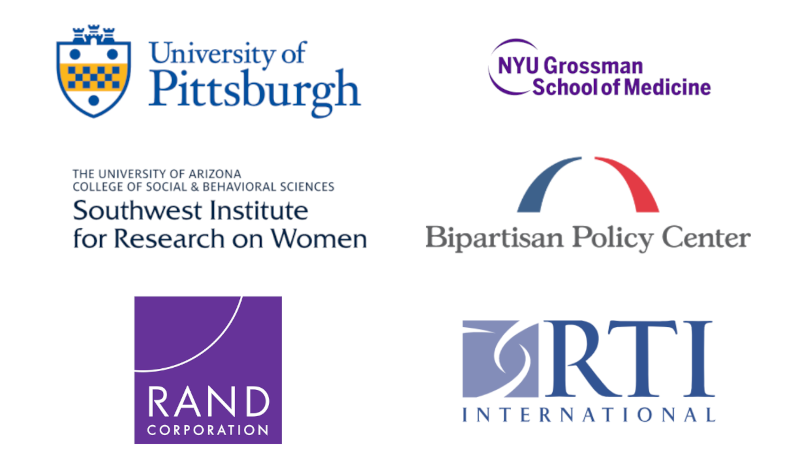News & Updates — FORE Announcements
FORE Announces Grants Totaling $1.3 Million to Assess Impact of COVID-19 on Opioid Use Disorder Treatment and Equity
March 16, 2021Today we announced six new grants totaling $1.3 million to assess the impact of regulatory relaxations and policy innovations made during the pandemic aimed at ensuring access to care while reducing in-person visits and inform future policies to improve access and promote equity for the treatment of opioid use disorder.
The funded organizations are: Bipartisan Policy Center, RAND Corporation, University of Pittsburgh, New York University (NYU) Grossman School of Medicine, University of Arizona, and RTI International (RTI).

Informing Federal Efforts to Combat the Opioid Crisis
Opioid related overdoses and deaths continue to be one of the nation’s leading public health crisis. The latest provisional data from the U.S. Centers for Disease Control and Prevention (CDC) indicates an increase in overdose deaths during the pandemic, estimating over 81,000 drug overdose deaths from May 2019 to May 2020—the highest number ever reported in a 12-month period. Congress has invested billions of dollars in funding to tackle the opioid crisis, but despite these efforts, drug overdose mortality rates continue to rise and have accelerated during the pandemic.
With FORE’s support, the Bipartisan Policy Center will establish an Opioid Crisis Task Force, comprised of leading experts and former federal and state officials to develop bipartisan recommendations for federal policies to drive down overdose death rates.
RAND Corporation will evaluate changes in buprenorphine prescribing, a gold standard medication for opioid use disorder, and how these changes may have affected access to care and treatment outcomes among underserved populations, including Medicaid beneficiaries and rural populations. This analysis can help guide decisions about whether to continue, amend, or discard relaxed prescribing policies put in place during the pandemic to improve future access to treatment.
Learning from States’ Experiences
The University of Pittsburgh, NYU Grossman School of Medicine, and the University of Arizona will assess the impact of COVID-19 measures on providers and at-risk opioid use disorder populations in Pennsylvania, New York, and Arizona.
In 2017, Pennsylvania designated 45 primary care providers, hospitals, community health centers, and substance use disorder treatment providers as Centers of Excellence for Opioid Use Disorder. The University of Pittsburgh will examine how providers at these integrated care centers implemented COVID-19-policies related to providing medications for opioid use disorder and telehealth services.
NYU Grossman School of Medicine will look at how temporary COVID-19 policies and changes have affected opioid use disorder treatment, particularly for Black and Latinx patients, at 660 addiction outpatient and opioid treatment programs across New York State. There will be an analysis of which clinics have been able to adapt and continue providing high-quality care, which have not, and how different patient populations have been affected.
The University of Arizona will evaluate how providers in Arizona implemented COVID-19 policies related to providing medications for opioid use disorder and telehealth. Arizona is home to 22 Native Nations and this project will include a focus on access issues facing tribal, rural, and remote communities, as well as other communities of color. There will be engagement with tribal leaders as well as state policymakers, providers, and patient advisory boards to promote more equitable access to treatment for all Arizonans.
Measuring Results to Define Strategy
In 2020, FORE provided nine Recovery Support Services grants to organizations around the country as part of the foundation’s rapid response to the COVID-19 pandemic and to help address the impact of social-distancing restrictions on opioid use disorder recovery efforts.
RTI will evaluate the extent to which grantees were able to preserve access to recovery supports with social distancing requirements in place. An understanding of how, under what conditions, and among whom were the innovative approaches to recovery support services most effective will help develop promising strategies to address the opioid crisis.